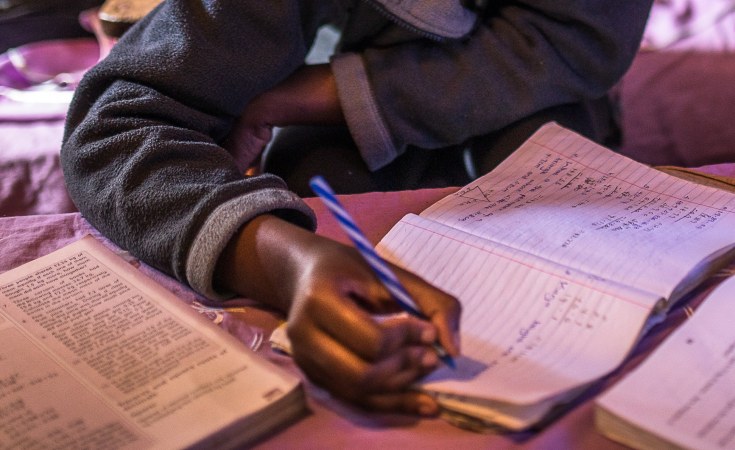On June 8, South Africa’s schools are expected to reopen their doors to grade 7 and 12 students, who have lost over two months of critical classroom instruction due to COVID-19. The first in a phased reopening, which has been pushed back from its initial date of June 1, has evoked a mixed response.
On the one hand, in a country with over 32,000 confirmed COVID-19 cases , parents are concerned about the safety of their children, while teachers are citing the lack of readiness to deal with the COVID-19 virus. On the other, education is the key to securing future opportunities.
But one thing is clear: education systems are woefully underprepared to safeguard students — not just in South Africa, but across the continent. In Niger, for example, where schools were scheduled to reopen on June 1, only 10% of public primary schools have access to basic handwashing facilities. Similarly, in Rwanda, there are nearly 60 students for every one teacher in public primary schools. This makes sanitation and social distancing nearly impossible.
Growing learning gap
The reality is that even before COVID-19 hit, there was already a global learning crisis across the continent. A staggering 87% of children in sub-Saharan Africa are unable to read or understand a simple sentence.
When COVID-19 hit Africa , 60% of low-income countries globally had no distance learning plan in place. For the rich, private tutoring and WiFi connections have guaranteed a continued education; but for the poor, who cannot even afford food , the internet is a pipe dream.
We must not underestimate the consequence of this growing learning gap and how it may affect generations to come. For example, many were still impacted from the loss of learning during World War II four decades later .
Undoing progress in access to education
When schools do reopen, not only will the poorest be the furthest behind, but they are also less likely to walk through the doors. Even before COVID-19, the out of school rate for the poorest households was five times higher than that of the richest. Now, with falling household incomes, that is about to get a lot worse. This year alone, remittances, which increase education spending by 35% , are expected to fall by 20% . Four out of five workers have been unable to work due to lockdowns. This will undoubtedly cripple parents’ capacity to send their children to school.
Education financing will fall
Worst of all, falling education financing will compound these impacts. Before the pandemic hit, the education financing gap was already staggering : education financing would need to increase from US$1.2 trillion to US$3 trillion annually to achieve a learning generation. And public financing disproportionately benefited the rich: in countries like Guinea and the Central African Republic, the government spends over five times more on education for the richest children than the poorest children.
Unless governments take action now, education budgets are likely to shrink further as we enter the worst recession since the Great Depression . Some governments have already indicated that they may cut financing to education as a result: Nigeria may cut the budget for the primary financing facility for federal contributions to basic education by nearly half .
Ultimately, we must not forget that the children of today are the doctors and public health experts of tomorrow, the most valuable resources in combating an inevitable future pandemic. They are critical in ending extreme poverty: if everyone completed secondary education, we could cut the number of people living in poverty worldwide in half .
Three recommendations
African governments are at a crossroads: they can choose to secure a better future for their economies, or they can choose an entire generation of wasted potential. To choose the former path, they must respond quickly on three fronts.
First, they must ring-fence their education budgets to ensure that education financing is protected. Governments should ensure that 4-6% of GDP is allocated toward education. And they must ensure that this financing is targeted to the poorest.
Second, to ensure learning doesn’t suffer, governments must provide adequate distance learning solutions and be prepared to catch students up once they re-enter the classroom. Educational technology solutions alone will not cut it when 20% of Africans don’t have access to the internet; governments should also invest in radio and television programming and distribute printed materials. Once students are in school, governments should implement remedial education and modify the school calendar to mitigate lost instructional time, as well as collect critical data on student progress.
Finally, governments should ensure that the poorest can return to school through financial and non-financial incentives. Targeted cash-based transfers will ensure that the poorest households can send their children back to school. Continued school feeding programs will provide a strong incentive for children to return.
If done right, these solutions will accelerate progress in education well beyond the pandemic. It can produce entire generations that serve as tomorrow’s leaders. But we must act today.
Edwin Ikhuoria is Africa Executive Director at the ONE Campaign


